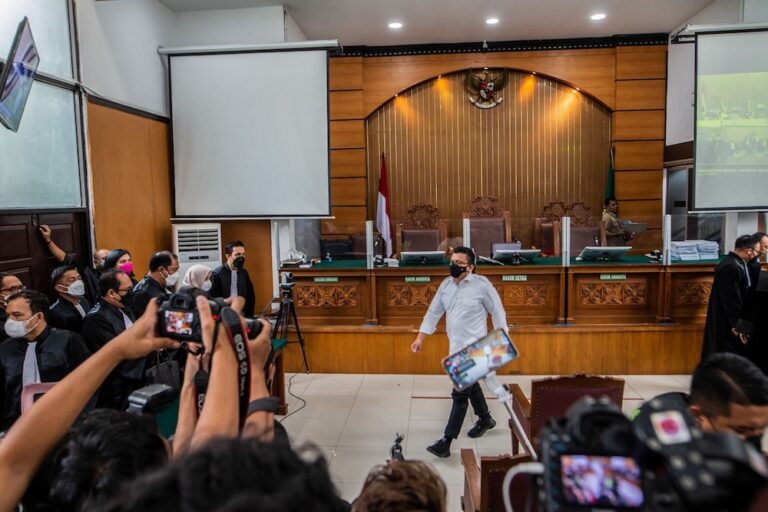(RSF/IFEX) – In a 30 June 2000 letter to Defence and Security Minister Surjadi Soedirdja, RSF called for the safety of journalists working in the Molucca Islands to be guaranteed. According to RSF, “issuing death threats to journalists of a Christian publication is a grave deterioration of press freedom in the Indonesian province, which is […]
(RSF/IFEX) – In a 30 June 2000 letter to Defence and Security Minister Surjadi Soedirdja, RSF called for the safety of journalists working in the Molucca Islands to be guaranteed. According to RSF, “issuing death threats to journalists of a Christian publication is a grave deterioration of press freedom in the Indonesian province, which is divided by inter-community conflict”. RSF also expressed concern about the consequences for the press of the imposition of a state of emergency in the Moluccas on 26 June. Robert Ménard, RSFâs secretary-general, reminded the minister that it was his duty to guarantee that media workers could cover the events and prevent militia from committing killings with impunity, unseen by the Indonesian people and the international community.
According to information obtained by RSF, the editorial staff of the daily “Siwa Lima”, published in Ambon (capital of the Moluccas), received death threats on 23 June from an officer of the Islamist militia Laskar Jihad. The journalists had to go into hiding for two days after the militia declared they would destroy the daily’s offices and “punish” the editorial staff. Laskar Jihad took thousands of volunteers to the Molucca Islands to participate in the “holy war” against Christians. They have already attacked Indonesian journalists during demonstrations in Jakarta.
On 26 June, the Indonesian government announced the imposition of a state of emergency in Molucca province in order to stop the inter-community violence that has left at least 4,000 people dead since January 1999. Minister of Law and Legislation Yusril Ihza Mahendra said that the state of emergency might include “a media blackout and control of telephone and radio communications”. Finally, on 28 June a military spokesman asked journalists not to publish “sensationalist reports” about events in the Moluccas.


